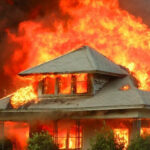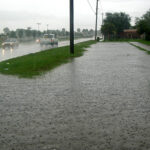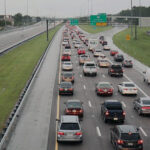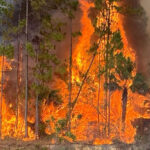Extreme Heat often results in the highest number of annual deaths among all weather-related hazards. In most of the United States, extreme heat is defined as a long period (2 to 3 days) of high heat and humidity with temperatures above 90 degrees. In extreme heat, evaporation is slowed and the body must work extra hard to maintain a normal temperature. This can lead to death by overworking the human body. Remember that:
- Extreme heat can occur quickly and without warning.
- Older adults, children, and sick or overweight individuals are at greater risk from extreme heat.
- Humidity increases the feeling of heat as measured by a heat index.
IF YOU ARE UNDER AN EXTREME HEAT WARNING:
- Find air conditioning.
- Avoid strenuous activities.
- Watch for heat illness.
- Wear light clothing.
- Check on family members and neighbors.
- Drink plenty of fluids.
- Watch for heat cramps, heat exhaustion, and heat stroke.
- Never leave people or pets in a closed car.
HOW TO STAY SAFE WHEN EXTREME HEAT THREATENS
- Find places in your community where you can go to get cool.
- Keep your home cool by doing the following:
- Learn to recognize the signs of heat-related illness.
- Never leave a child, adult, or animal alone inside a vehicle on a warm day.
- Find places with air conditioning. Libraries, shopping malls, and community centers can provide a cool place to take a break from the heat.
- If you’re outside, find shade. Wear a hat wide enough to protect your face.
- Wear loose, lightweight, light-colored clothing.
- Drink plenty of fluids to stay hydrated. If you or someone you care for is on a special diet, ask a doctor how best to accommodate it.
- Do not use electric fans when the temperature outside is more than 95 degrees, as this could increase the risk of heat-related illness. Fans create air flow and a false sense of comfort, but do not reduce body temperature.
- Avoid high-energy activities.
- Check yourself, family members, and neighbors for signs of heat-related illness.
Know the signs of heat-related illness and the ways to respond to it:
- HEAT CRAMPS
- HEAT EXHAUSTION
- HEAT STROKE







